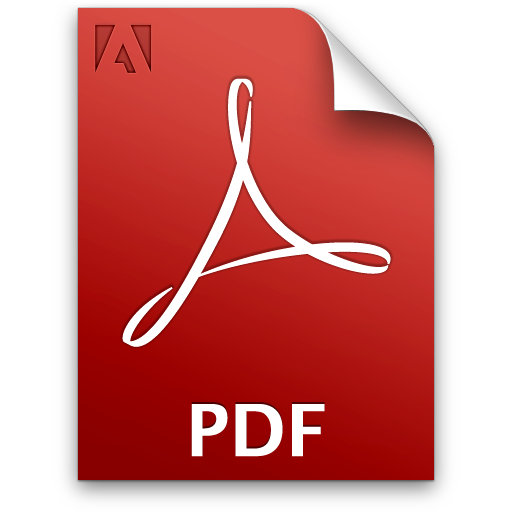THE EFFECT OF TECHNOLOGY ON STUDENTS' READING HABITS: READING FROM A SCREEN VERSUS READING FROM PAPER
DAVIDOVITCH Nitza
Professor, Director of Academic Development
and Evaluation Ariel University, Israel
e-mail: [email protected]
Анотація
Читання займає центральне місце в житті людини. Діти вчаться читати і писати, їх заохочують до читання як вдома, так і в освітніх установах. З раннього віку розвиваються навички читання і здібності дитини, це дозволяє краще зрозуміти навколишній світ. Складається враження, що учні шкіл і студенти більше уваги приділяють цифровим технологія, а не читанню книг. Це пов’язано з тим, що в школах і вищих навчальних закладах з’явилися такі форми роботи як: онлайннавчання, електронні книги, віртуальні уроки, і так далі. Наразі ми провели дослідження читання серед студентів різних факультетів Aріельського університету, зосередивши увагу на питанні про те, чи читають студенти навчальний матеріал, необхідний для їх курсів, і що вони використовують для цього: комп'ютери чи паперові джерела. Незважаючи на загальну технологічну трансформацію, для навчання студенти на більшості факультетах віддають перевагу паперовим джерелам і книгам, а не використанню комп'ютерів.
Ключові слова: читання, паперові книги, цифрові ресурси, навички читання, типи читання, технологічні зміни, читання з екрану, читання з паперу, технологічні інструменти, світ цифрових технологій.
Повний текст:
СПИСОК ДЖЕРЕЛ
1. Ackerman, R. (2012). Learning from a computer screen or learning from paper: Which medium enables more efficient learning and why? Gadish: Journal for Adult Education, 13, 107–114. [in Hebrew]
2. Akanda, A. K. M. E. A., Hoq, K. M. G., & Hasan, N. (2013). Reading habit of students in social sciences and arts: A case study of Rajshahi University. Chinese Librarianship: an International Electronic Journal, 35, 60–71.
3. Akarsu, O., & Darıyemez, T. (2014). The reading habits of university students studying English language and literature in the digital age. Journal of Language and Linguistic Studies, 10(2), 85–99.
4. Annamalai, S., & Muniandy, B. (2013). Reading habit and attitude among Malaysian polytechnic students. International Online Journal of Educational Sciences, 5(1), 32–41.
5. Davidovitch, N., Yavich, R., & Druckman, E. (2016). Don’t throw out paper and pens yet: on the reading habits of students. Journal of International Education Research, 12(4), 129–144.
6. Dilshad, M., Adnan, A., & Akram, A. (2013). Gender differences in reading habits of university students: An evidence from Pakistan. Pakistan Journal of Social Sciences (PJSS), 33(2), 311–320.
7. Epstein & Yanai (2011). Is it possible to «catch the flu» of the love of reading? Meidaat Journal of Librarianship, 7, 57–64. [in Hebrew]
8. Jacob, T. & Shor, F. (2010). Reading habits of undergraduate physiotherapy students at the Ariel University Center of Samaria. Journal of Physiotherapy, 12(1), 9–17. [in Hebrew]
9. Knoester, M. (2010). Independent reading and the «Social Turn»: How adolescent reading habits and motivation relate to cultivating social relationships. Networks: An On-line Journal for Teacher Research, 12(1), 1–3.
10. Leff, B., & Harper, G. M. (2006). The reading habits of medicine clerks at one medical school: frequency, usefulness, and difficulties. Academic Medicine, 81(5), 489–494.
11. Owusu-Acheaw, M., 2014, Reading habits among students and its effect on academic performance: A study of students of Koforidua Polytechnic. Library Philosophy and Practice (e-journal). Paper 1130. Retrieved from:http://digitalcommons.unl.edu/libphilprac/1130 (Accessed: 21 November 2015).
12. Palani, K.K. (2012). Promoting reading habits and creating literate society. Journal of Arts, Science & Commerce, 3(2), 90-94. Retrieved from
http://www.researchersworld.com/vol3/issue2/vol3_issu e2_1/Paper_10.pdf.
13. Parlette, M. (2010). Personal growth, habits, and understanding: Pleasure reading among first-year university students. (Master's thesis). Retrieved from:http://ariel.summon.serialssolutions.com.mgsariel.macam.ac.il/heHE/search?s.q=Personal+Growth% 2C+Habits%2C+And+Understanding. ISBN (0494636440).
14. Pundak, D., Herscovitz, O. & Shacham, M. (2010). Characteristics of textbook and online sources reading by college and university students. Al Hagova, 9, 20-25. [in Hebrew]
15. Shen, L. (2006). Computer technology and college students' reading habits. Chia-Nan Annual Bulletin, 32, 559–572.
16. Simon, Eric J. 2001. Electronic textbooks: A pilot study of students e-readinghabits. Future of Print Media Journal. Available at http://libries.curties.edu.au/libres12u2/Index.htm.
17. Sheorey, R., & Mokhtari, K. (1994). The reading habits of developmental college students at different levels of reading proficiency. Reading Improvement, 31, 156–156.
18. Vandenhoek, T. (2013). Screen reading habits among university students. International Journal of Education and Development using Information and Communication Technology, 9(2), 37– 47.





